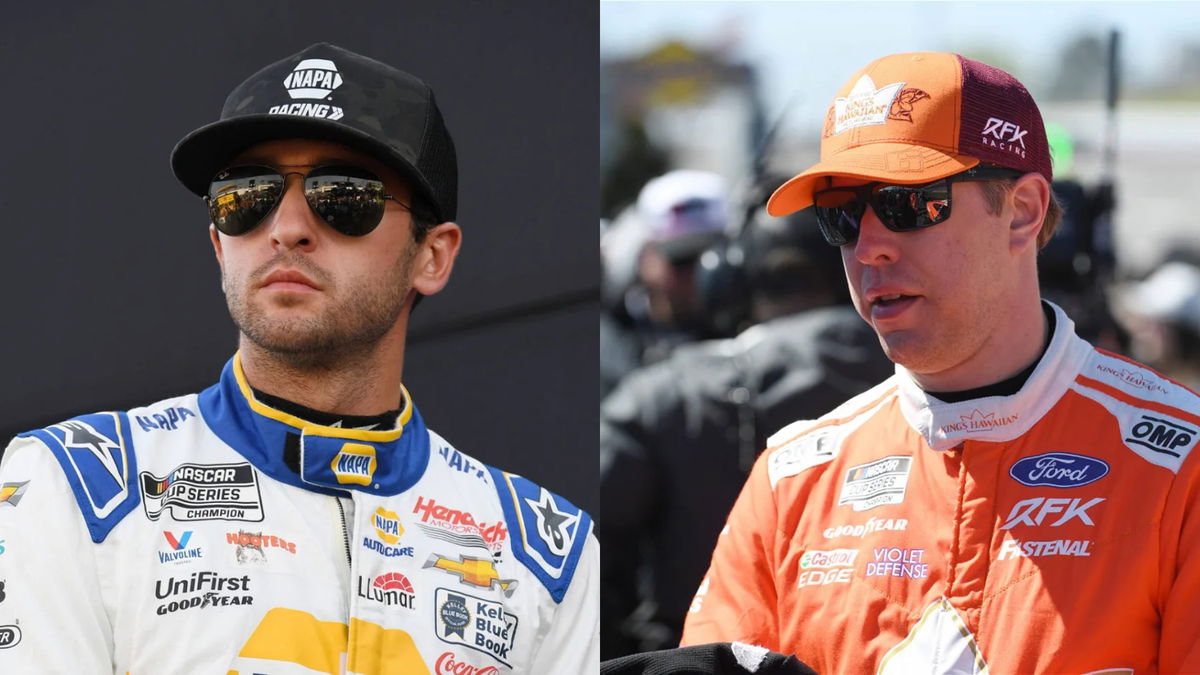
Imago
Image Credits: Imago

Imago
Image Credits: Imago
The heat of a NASCAR race isn’t just from the engines roaring on the track; it often stems from fierce debates off it. Recently, two of the sport’s most respected drivers, Brad Keselowski and Chase Elliott, have sparked widespread conversation by questioning the structure that determines the sport’s champion. Unlike the adrenaline-fueled battles on asphalt, their dialogue dives into the essence of fairness and recognition in NASCAR’s championship quests.
Watch What’s Trending Now!
Keselowski and Elliott, each a proven champion, highlight a growing sentiment among drivers and fans alike: the playoff system might be overshadowing the true competitiveness and consistency demonstrated throughout the season. Instead of celebrating sustained excellence, they argue, the current format emphasizes a short burst of performance, leaving much of the regular season’s drama unacknowledged. Their shared perspective is not just a critique but a call for NASCAR to rethink how it crowns its best, potentially reshaping the sport’s future.
Brad Keselowski stands with Elliott’s critique
Brad Keselowski has publicly endorsed Chase Elliott’s call for a re-examination of NASCAR’s playoff system, emphasizing how the format restricts recognition of consistent achievement. Jeff Gluck posted on X, writing that Chase Elliott said, “We’ve had a really good and competitive battle to the regular season (championship) over correct me if I’m wrong the last two or three years. It’s really been pretty tight all the way down to Daytona. If you just take that as your sample set over the first 26 weeks, it looks pretty solid to me. The system would be just fine if you just had a full season.”
Brad Keselowski commented that, “Strikes me just now, part of what’s holding the Nextgen car back in popularity is that the parity it has generated can’t be recognized and celebrated in a playoff format.” He added that “the small sample size of races in the current format creates a natural oblivious state to the excellence this car requires from teams and drivers to get weekly results.” Keselowski’s point underscores that the Next Gen car, which has closed the performance gap among teams, demands skill and teamwork week after week, a level of consistency that the playoff system’s limited focus tends to overlook.
Strikes me just now, part of what’s holding the Nextgen car back in popularity is that the parity it has generated can’t be recognized and celebrated in a playoff format.
The small sample size of races in the current format creates a natural oblivious state to the excellence… https://t.co/lNrcX1rviO
— Brad Keselowski (@keselowski) July 25, 2025
Chase Elliott, having secured his playoff spot with a dramatic win at Atlanta, where he narrowly edged Keselowski, echoed this perspective. He argued that the playoff format undervalues such sustained competitiveness by placing disproportionate emphasis on a handful of postseason races rather than the entire 36-race season. Supporting this view, Keselowski pointed to the rising parity in 2025, noting that through late July, 12 different drivers had won races, compared to 10 the year before.
This increased parity reflects how the Next Gen cars have made each race unpredictable and competitive, and Keselowski believes a full-season points system would more accurately reward the breadth of excellence shown throughout the calendar. Earlier in 2025, in a Dale Jr Download ‘Business of Motorsports’ episode, Brad Keselowski also confessed to his experience in 2020. “We won 4 races, I think, finished 2nd at Phoenix, and missed out on the championship. You almost forget about the races you won or all the success you got. It’s not my decision… the current format, in my opinion, has some flaws.” He lamented how the emphasis on the final undermines season-long performance. Despite recognizing the excitement the playoffs bring, Keselowski called the format stale, advocating for a system balancing fan engagement with fairness.
These thoughtful critiques from two champions have resonated broadly with fans and analysts, stirring debate about how NASCAR might improve its championship format to better reflect driver consistency, competitiveness, and the evolving nature of the sport’s machinery and competition.
Brad Keselowski’s 2025 Race Performance
In 2025, Brad Keselowski has demonstrated notable persistence and competitiveness, mirroring his sentiments about consistency being the core of true greatness. Driving the No. 6 Ford Mustang for RFK Racing, Keselowski has been a consistent presence near the front in many races. Though he has faced stiff competition, including from Chase Elliott, Keselowski continues to rack up solid finishes that reflect season-long skill rather than singular moments of glory.
His recent battles include a narrow last-lap defeat to Elliott at Atlanta, where Elliott clinched his 20th career win and playoff berth. “The 48 and 9 just got together,” Keselowski said, referring to Bowman and Elliott. “At the end, they were able to double-team me.” Despite this, Keselowski’s performance across the season speaks to his argument for the full-season approach: competing for top finishes week-to-week against a growing field of winners.
Through midsummer, Keselowski has displayed resilience in a highly competitive year that features 12 winners to date, underscoring the parity he has long noted. Though exact stats show Elliott’s impressive streak of top-10 finishes, 12 top-10s, and no finish outside the top 20, Keselowski’s own points accumulation and racecraft highlight a driver focused on maximizing every race outcome in a challenging field.
Keselowski’s candid remarks about the sport and his on-track tenacity illustrate a driver deeply invested in not just winning but also how the sport evaluates and honors success. His stance reflects both pride in his recent form and frustration with a system that risks undervaluing consistent, season-long excellence in favor of a playoff structure that rewards only brief late-season peaks. This combination of performance and perspective positions Keselowski as a key voice in NASCAR’s ongoing conversation about its future direction.








